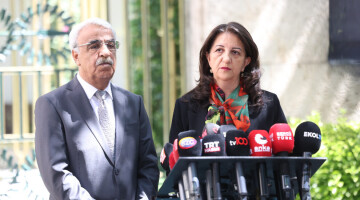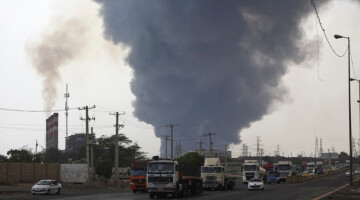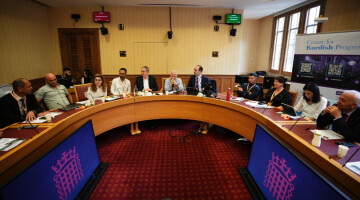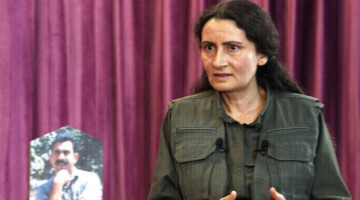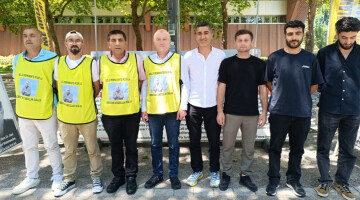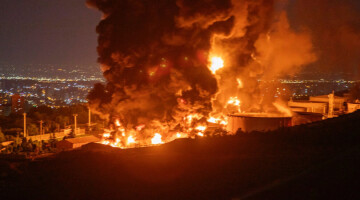It created a new offence of entering or remaining in a “designated area” overseas. The offence would apply to UK nationals and residents, with a maximum penalty of ten years imprisonment, a fine, or both. A “reasonable excuse" defence is available; limited exceptions are permitted. But the onus is on the defendant to provide the reasonable excuse. In other words, this Act has eliminated the presumption of innocence and replaced it with a presumption of guilt
According to the Government, the new offence is necessary to deal with returning foreign fighters and to deter people from travelling to overseas combat zones. It states that there are:
“400 people in this country who have returned from activity in hotspots, many of whom we believe, from intelligence, have been active, but whom we have been unable to prosecute.”
This is a remarkable state of affairs: alleged returning fighters have not been prosecuted, supposedly due to insufficient evidence, despite wide-ranging criminal offences (such as encouragement of terrorism, training for terrorism, and membership of a proscribed organisation), all subject to extra-territorial jurisdiction.
Having failed to prosecute returnees for genuine terrorist acts, the government proposes to criminalise mere travel to the area – a disproportionate remedy which presumes guilt. In practice, such travel has had diverse reasons, e.g. to visit family, conduct research, document human rights abuses, undertake humanitarian relief and to join the fight against ISIS. People travelling for such reasons could be criminalised by the new offence, given its presumption of guilty motives and terrorist activities. Faced with up to ten years imprisonment should their reasonable excuse not be accepted, some people will simply opt not to travel; this outcome would have a chilling effect on family relationships, academic inquiry, investigative journalism and acts of solidarity.
The offence also risks criminalising vulnerable people who are groomed or otherwise convinced to travel under false pretences, as well as people who are unable to leave an area once it has been designated. In some circumstances, people will be unaware that an area has been designated and may fear returning home once they become aware that they have committed an offence by failing to leave within the requisite time period.
Police powers under all the numerous counter-terrorism laws since 2000 have not brought security to the British people. Ordinary criminal law had sufficient powers to prosecute anyone planning terrorist acts in the traditional sense, i.e. violent acts aiming to cause serious harm or terrorise entire groups. Despite more comprehensive powers under anti-terror laws, the state has often failed to identify potential terrorists and to prevent them from carrying out terrorist acts. Meanwhile non-violent political activity and associations have become increasingly criminalised by the state.
As a recurrent alibi, successive governments have always cited ‘insufficient powers’ to justify new offences and increased powers. These have blurred any distinction between violent acts and political activity, likewise between freedom fighters and terrorists. These powers have given the UK and its allies greater opportunities to suppress freedom fighters by labelling them as terrorists.
In particular, Britain’s counter-terror regime has helped to legitimise Turkey’s long-standing terror campaign against its Kurdish population in the name of ‘counter-terrorism’. In parallel the UK has continued selling Turkey arms for that offensive, which entered northeastern Syria earlier this year, providing a cover for terrorist groups such as Jabhat Al-Nusra. UK ‘anti-terror’ powers have reinforced that cover for Turkey’s terror campaign, thus playing both sides of the conflict in northeastern Syria.
Like all counter-terrorism legislation from the Terrorism Act 2000 onwards, the latest powers are indiscriminate catch-all measures. As a good example, many British volunteers joined the Peoples Protection Units to defend Kobane against the ISIS onslaught or joined the Syrian Defence Forces to defeat ISIS elsewhere in northeastern Syria; their defence efforts likewise had support from the Western coalition.
Yet Britain has already prosecuted some returnees who had joined the YPG to fight ISIS. Now such fighters could be more easily criminalised under these new powers. Such powers are unjust, analogous with criminalising anti-fascist resistance fighters in WWII. The ‘designated areas’ powers blur any distinction between terrorists versus those who fight terrorists to protect their communities.
The CAMPACC called "upon political parties, community organisations, human rights organisations, professional associations, trade unions, academics, lawyers, university students and social justice activists to:
1. Oppose these unjust powers that aim to throw people in jail for 10 years just for being in a particular physical location as they are a serious abuse of civil liberties, regardless who is targeted.
2. Defend anyone who is prosecuted under these illegitimate, unjust powers.
3. Raise public awareness through meetings, writings and social media about the injustice of these powers which criminalise individuals for their mere presence in a particular area.
4. Offer solidarity and support to families of those who lost their lives in fighting ISIS in their effort to repatriate their remains and remember their sacrifice.
5. Encourage and support individuals and groups to visit Northeastern Syria (Rojava) to learn about the freedom movement there and report back what they have learned."


